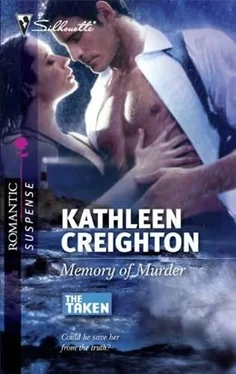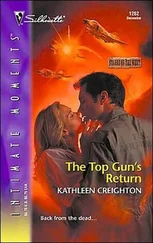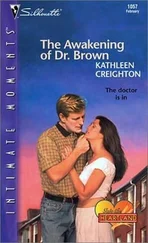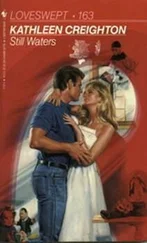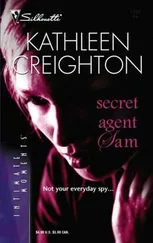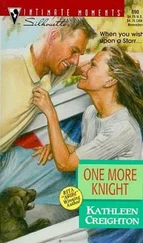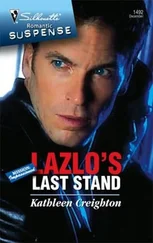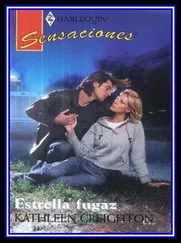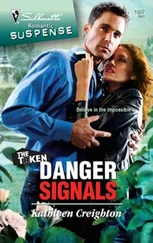Alan let out an exasperated breath. “Yeah, but is he alone? What’s the matter with those guys? Have to have everything spelled out?” He swore under his breath, making his way down the driveway in long strides to his car. “Find out, Carl. I want to know if Merrill’s had any visitors.”
“Gotcha,” Carl said. “You heading over there?”
“On my way.” He was already in his car. The engine fired and he drove through the gate and turned into the street with tires squealing.
“First, I should tell you that my name-the one I was given at birth-is Alexi Kovalenko. I was born in Kiev, which is the capital city of Ukraine.”
This isn’t happening, Lindsey thought. She fought desperately not to throw up. The words seemed to come at her in a fierce wind. She felt cold…almost paralyzed. And at the same time endangered…pursued. Like a nightmare in which she was chased endlessly while struggling to run on limbs weighed down with thick, deep mud. She prayed it was a nightmare, and that she would wake up and it would be over and quickly forgotten.
Though she tried not to, she must have made some sound because he-the stranger she’d called Dad for forty years-held up a hand asking, begging her to let him continue.
“Please…please listen. I am not a monster. What I did, I did for what I thought were very good reasons at the time…” He closed his eyes and put a hand over them-she saw this through a blur of tears-and after a moment, when she hadn’t spoken or fled, he heaved in a careful breath and went on.
“At that time, of course, Ukraine was part of the U.S.S.R., and it was the era of Stalin. My father was a faithful member of the Party, so our family lived fairly well. Then came the war. Because of his connections, my father was able to have my mother and me sent away, to the east, to safety, so we escaped the terrible starvation and fighting that ravaged Ukraine for so many years. My father was killed during the battle for Kiev. Because he died a hero, my mother and I were well taken care of. After the war, when I was still a young boy, I was taken from my mother and sent to live in a different-very different-kind of village. I was told I had been selected for a special mission, a very rare opportunity to serve my country.
“Lindsey,” he said, as she sat struggling to breathe…struggling to weep silently and not scream in anguished denial, “you are too young to remember how it was then, at the height of the Cold War. People on both sides lived in constant fear of nuclear holocaust, and the knowledge that there were thousands of warheads pointed at our cities and that anything-even a stupid mistake-could trigger annihilation. Both sides, understanding that knowledge was power, employed vast networks of spies and agents working to provide information as to what the other side was planning, what their capabilities were-well, I guess you’ve seen enough movies and read enough spy thrillers, that perhaps you have some idea-even if a romanticized one-what it was like.”
He paused and looked at her as if waiting for her confirmation. No longer crying, she only stared back at him in numb silence, and after a moment he went on.
“Anyway-this ‘village’ where I was now to live was, in fact, a top secret project in this war for information. It had been constructed as an exact replica of a small town in the American Midwest, although it was located somewhere in the vast interior of the Soviet Union. There I lived and went to school-as an American boy. I learned to speak American English perfectly, without the slightest trace of an accent. In school I studied American history and government and literature. I ate American food, played American games, watched American movies, read American books. I became…American-but only on the outside. In my heart I remained a loyal Soviet citizen, completely dedicated to my country’s cause.
“By the mid-1950s, when I was nearly twenty, I had completed my training and was considered ready to fulfill my mission. I, along with others who had completed the program-I have no idea how many of us there were-was smuggled into the United States, where I slipped seamlessly into American life. I had been provided with a background, all necessary documents. All I had to do was wait to be contacted and told what my mission was to be. In the meantime, I went to school, got a job, dated-but didn’t marry. That would have made it too hard to keep my secret, I thought. And the years went by.
“Then, in the late summer of 1969, I received the orders I had been waiting for.”
He paused for a long time, and Lindsey could feel him looking at her. When she didn’t raise her eyes from her hands, clasped tightly together on the tabletop, once again he drew a breath and went on.
“I was to go to Baltimore, where I was to… eliminate -”
“Eliminate-you mean kill, don’t you?”
He glanced at her, startled, perhaps, that she had finally spoken. “Yes- kill …two people. I was told these people were traitors to their country. Agents who had turned, gone over to the enemy.”
“Traitors!” Her cry was one of pain, of outrage. “What are you talking about? He was a schoolteacher! She was a housewife-a mother. They weren’t spies! ”
A spasm of emotion twisted his face, before he lifted a hand to cover it. What the emotion was she didn’t know or care-she had no desire to understand him, just then. “Yes…yes,” he said in a ragged voice, “I know. But by the time I found that out, you see…it was already too late.”
“You’re not gonna like this,” Carl said. His voice came through on Alan’s Bluetooth, with too much background noise.
“Tell me,” Alan said, eyes fixed grimly on the traffic ahead.
“The guys sitting on Merrill just informed me he has a visitor-arrived about forty-five minutes ago.”
Alan swore. “And they’re just telling us this now? ”
“Guess they were told to report on Merrill’s movements, so that’s what they did. Anyway, from the description, sure sounds like Lindsey. Who else would it be?” There was a long, empty pause, while Alan fought back all sorts of emotions, none of them familiar to him, the most prominent of which was fear. Then Carl said, “What do you want me to do? Should I tell ’em to go in?”
“No. God, no. The last thing we want to do is provoke a hostage situation. No…just tell ’em to sit tight. I’m on my way.”
His car was equipped with emergency lights and siren, which he didn’t use often. He switched them both on now.
“I had no way of knowing,” Richard-or Alexi-said. “Sometime between when I was told where to find my targets, and my arrival in Baltimore, they fled. And another young couple-innocents-moved into their apartment. How was I to know? They were the same approximate age…fit the general description…”
“They had a child!”
He hesitated, then seemed to steel himself. “That was unfortunate, but I didn’t consider it important. After all, I’d been raised in a culture in which the bonds of family, even between parents and children, were considered less important than duty…loyalty to country. I had lived in America long enough to know the boy would be taken care of, perhaps even grow up stronger because of it. No, he wasn’t a consideration to me at all.” He waved a hand, then sat for a long moment gazing across the barrancas, disappearing now in the purple haze of sunset.
“Most of the rest…I think you probably already know. Everything was in place-the boat, the weights to take the bodies down…”
The bodies…my parents. Lindsey sat still, crying quietly. She felt empty.
“Everything went like clockwork. I waited…took them when they were away from home, and there were no witnesses. They seemed more bewildered than afraid…”
Читать дальше
